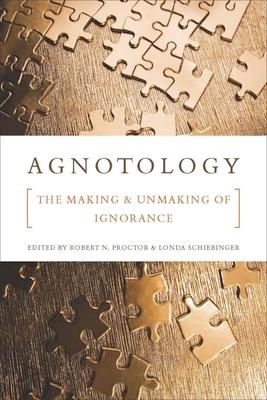What don't we know, and why don't we know it? What keeps ignorance alive, or allows it to be used as a political instrument? Agnotology--the study of ignorance--provides a new theoretical perspective to broaden traditional questions about "how we know" to ask: Why don't we know what we don't know? The essays assembled in Agnotology show that ignorance is often more than just an absence of knowledge; it can also be the outcome of cultural and political struggles. Ignorance has a history and a political geography, but there are also things people don't want you to know ("Doubt is our product" is the tobacco industry slogan). Individual chapters treat examples from the realms of global climate change, military secrecy, female orgasm, environmental denialism, Native American paleontology, theoretical archaeology, racial ignorance, and more. The goal of this volume is to better understand how and why various forms of knowing do not come to be, or have disappeared, or have become invisible.

Agnotology: The Making and Unmaking of Ignorance
What don't we know, and why don't we know it? What keeps ignorance alive, or allows it to be used as a political instrument? Agnotology--the study of ignorance--provides a new theoretical perspective to broaden traditional questions about "how we know" to ask: Why don't we know what we don't know? The essays assembled in Agnotology show that ignorance is often more than just an absence of knowledge; it can also be the outcome of cultural and political struggles. Ignorance has a history and a political geography, but there are also things people don't want you to know ("Doubt is our product" is the tobacco industry slogan). Individual chapters treat examples from the realms of global climate change, military secrecy, female orgasm, environmental denialism, Native American paleontology, theoretical archaeology, racial ignorance, and more. The goal of this volume is to better understand how and why various forms of knowing do not come to be, or have disappeared, or have become invisible.